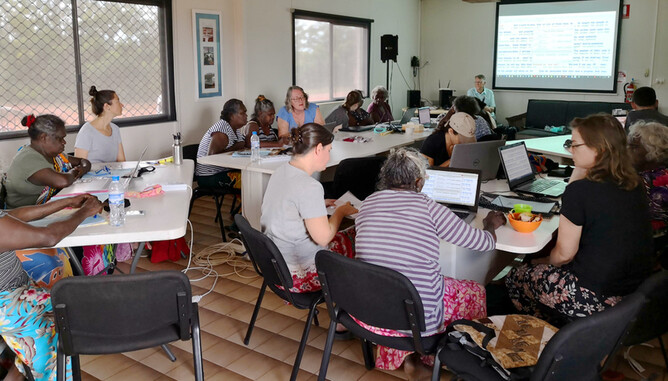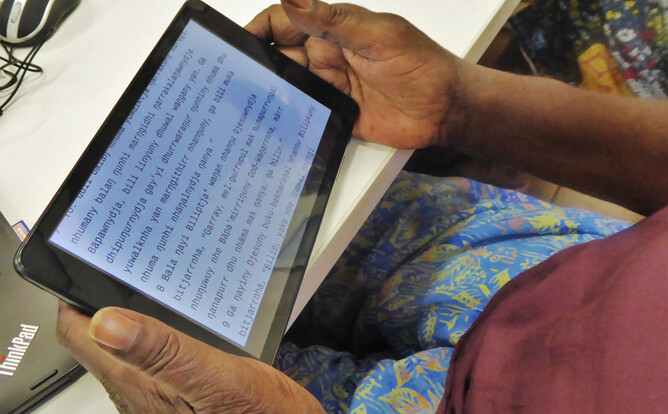It is 2019 yet there is still a long way to go to complete translating the whole Bible to Yolngu-Matha, the heart language of the Yolngu people. The encouraging news is that there are both indigenous and non-indigenous translators in North East Arnhem Land who have invested years in building relationships and learning language to effectively translate the Bible.
Yolngu-Matha was originally an oral language. Though the Yolngu excelled in bark paintings, traditional dances and other forms of art, their only method of passing down knowledge and preserving language was through speech. Sadly, without a written form and other influencing factors going against the language, it is reported that a few Yolngu languages might have been lost forever.
With the incoming influence of the west, the language soon borrowed letters from the Latin script (same as English) to transpose from spoken to written language. Yolngu-Matha consists of 12 different dialects each with its own name, spoken across roughly 25 clans. While there is much difference between dialects it is still common for Yolngu to understand and converse in more than one dialect. Most often, these dialects become a second, third or fourth language for them. This in turn pushes English, a language in which the Bible is readily available, to be the sixth, seventh or even eighth language for some.
To paint a picture of how ‘fresh’ this language is for translators, the first online Yolngu-Matha dictionary was only released in 2015 by Charles Darwin University.
Bible translators gathered at the MAF base for two weeks to learn a new translation software called “Adapt It”. Adapt It is a free tool for quickly translating between related languages. This software runs on all major platforms, facilitating translation and collaboration between other translation tools such as UBS Paratext and Bibledit.

